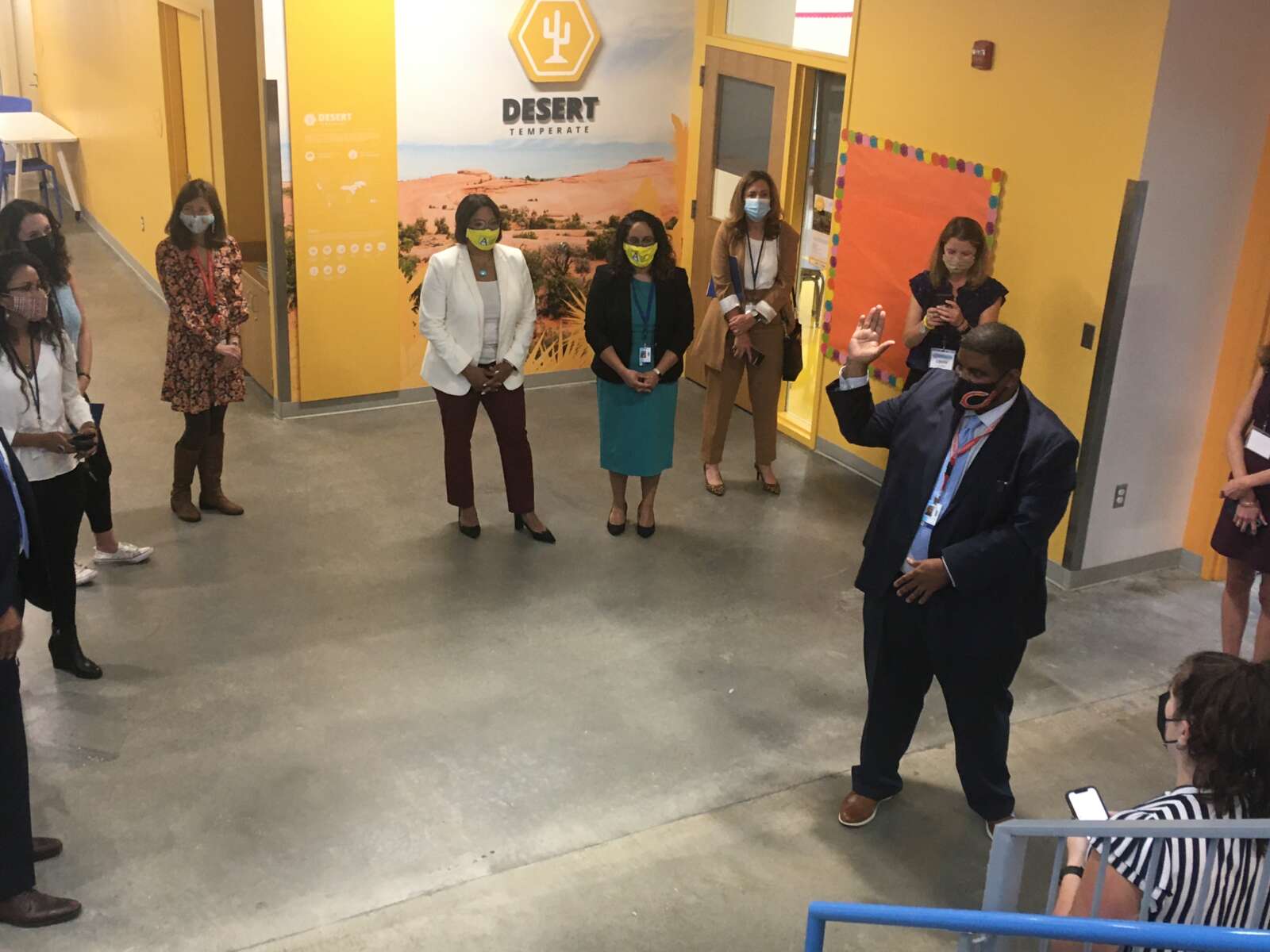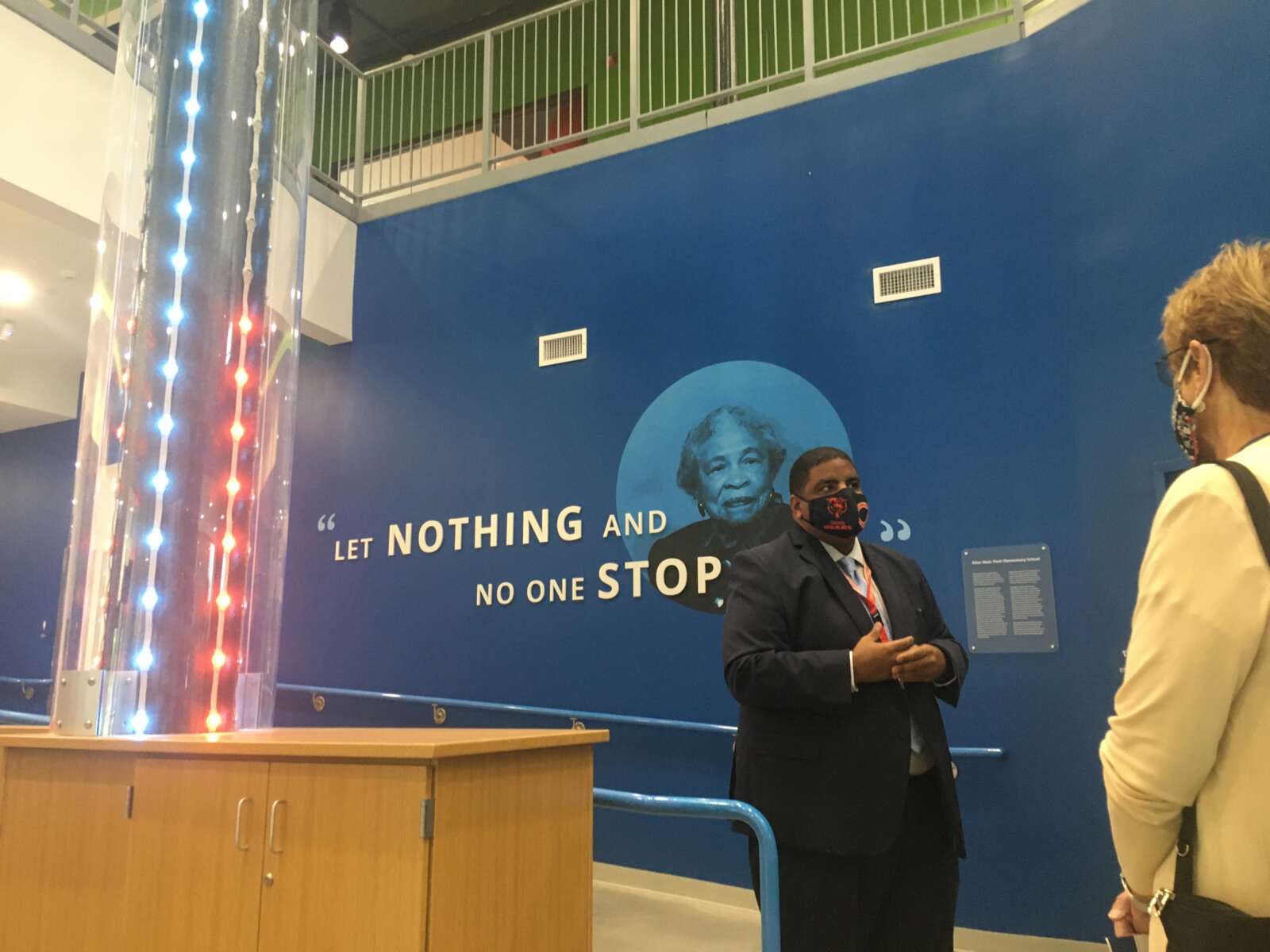For Arlington’s environmentally-sustainable schools — one of which was praised as a model for the country during an event yesterday — the buildings are teaching tools.
Agency heads from former presidential administrations and other boldface names in education toured Alice West Fleet Elementary School yesterday, highlighting the building as an exemplary, energy-efficient school, while teachers noted the impact it has on students.
The visitors, representing the nonprofit Aspen Institute, came to the school to help unveil the organization’s K12 Climate Action initiative environmental plan for schools.
“I hope school districts around the country can learn from Arlington,” said John King Jr., former Secretary of Education under Barack Obama.
The school opened in the fall of 2019 and cost around $59 million, according to Arlington Public Schools. A contract allowed a company to put solar panels on the roof at no upfront cost to APS. Seventy-two 560-foot-deep underground wells exchange heat with the ground.
“It’s an all-electric building, so no fossil fuels are burned operating this building,” Wyck Knox of VMDO Architects, whose firm designed the school, told visitors.
Fleet is one of three schools that the school system considers net-zero in terms of energy usage — the others being Discovery Elementary School and the newly opened Cardinal Elementary School.
“Generally, the building doesn’t cost more to do these features,” said Jeffrey Chambers, the director of design and construction for Arlington Public Schools. “A sustainable building should not cost you anymore than a regular building if you’re smart about what you do.”
Discovery’s energy costs are less than $15,000 per year, which compares to around $120,000 for a typical elementary school, said APS Director of Facilities and Operations Catherine Lin, as visitors toured a classroom overlooking a playground and the solar panel-covered roof.
The school also takes advantage of the sunlight to turn off electric lights and illuminate classrooms naturally whenever possible.
Aspen Institute leaders lauded Fleet Elementary as an example of what districts can do with new and retrofitted buildings.
“This is an amazing school and precisely the thing we want to highlight,” said New Jersey governor and Environmental Protection Agency administrator Christine Todd Whitman, who served in President George W. Bush’s administration.
King and Whitman, the co-chairs of the climate initiative, noted the impact the nation’s school districts have on the environment with the amount of land, buses and other resources at their disposal. Others in attendance included American Federation of Teachers president Randi Weingarten, teacher and philanthropist Valerie Rockefeller, and APS Superintendent Francisco Durán.
Along with other environmental efforts, APS announced last month that it’s getting three fully electric school buses to replace those with diesel engines. The district aims to debut them next fall.
Fourth grade history and science teacher Ashley Snyder said that the school’s sustainability efforts have inspired students to talk with their families about the environment — including one family that’s now getting a rain barrel and another that’s talking about installing solar panels in the community.
She noted how the building itself is part of a student’s education. Each floor teaches students about earth science, while a cylindrical column with blue and red lights displays live data about how much energy the building is creating and using.
“Being able to have a field trip right at our school has been so life changing,” Snyder said.




